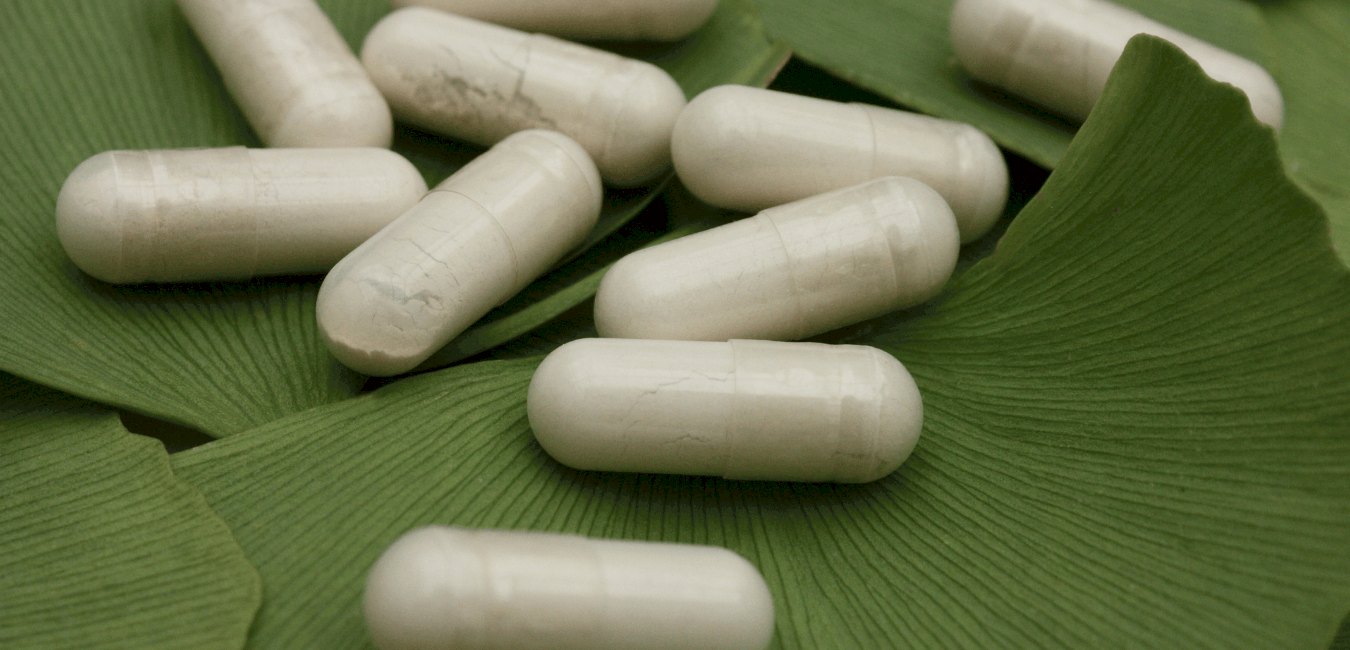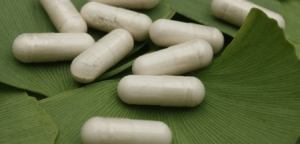
Ginkgo Biloba Phytosome is a powerful nootropic supplement that has been proven to improve cognitive function and memory.
This article will explore the benefits of this powerful supplement, as well as how it can be stacked with other supplements for maximum effectiveness.
So without further ado, let's just get straight into it, shall we?
What is Ginkgo Biloba Phytosome?
Ginkgo biloba (Family Ginkoaceae) is a popular Chinese herbal medicine.
Gingko is used to treat a number of conditions affecting the central nervous system (CNS), including Alzheimer's disease, cerebral insufficiency, and related neurosensory problems, such as dizziness, tinnitus, etc.
The reduced bioavailability of the active components (flavonoids) due to intensive metabolism by gastrointestinal microorganisms following oral administration is an important limiting factor.
Ginkgo biloba phytosomes have been developed to improve bioavailability, which are advanced herbal formulations created by binding separate components of plant extracts together with phosphatidylcholine in order to create a more absorbable product.
Ginkgo Biloba Phytosome is a proprietary blend of Ginkgo Biloba and key actives that has been bound to phosphatidylcholine (derived from non-GMO soy lecithin), providing improved bioavailability.
It is recognized for its ability to enhance memory function and improve blood flow to the brain and extremities, which aids in the improvement of memory and mental sharpness.
Ginkgo Biloba Phytosome has also been found to improve cognitive function in animal studies. It may aid in the detection of early signs of cognitive deterioration.
The brain is high in unsaturated fats, especially omega-3 fatty acids, which are susceptible to oxidative damage.
Ginkgo Biloba Phytosome can assist prevent the oxidation of these essential fatty acids induced by free radical injury.
Ginkgo Biloba Phytosome Benefits

As briefly mentioned, Ginkgo Biloba Phytosome may increase cognitive function, memory, and mental sharpness.
Ginkgo has also been shown to improve blood flow in the brain which can lead to greater alertness, attention span, and learning abilities.
It is considered an antioxidant herb due to its ability to neutralize free radicals with significant potency (more than other popular antioxidants, such as vitamins C and E).
Ginkgo may also reduce the effects of stress on the body by blocking cortisol receptors.
It acts synergistically with vitamin B12 to prevent cognitive decline in aging populations.
Here's an overview of the Ginkgo Biloba Phytosome benefits:
- Improves anxiety - It has been shown to reduce the symptoms of anxiety in both children and adults.
- Improves blood flow - Improving blood flow can have great benefits for brain health, including improved memory function.
- May improve mental sharpness - Especially if taken over an extended period of time, Ginkgo may help you retain your focus while studying or performing other cognitive tasks.
- May improve memory - Ginkgo has been shown to enhance the function of neurotransmitters and increase blood flow to the brain, which can lead to better memory recall (especially short-term).
- Improves mental alertness - The increased oxygenation can help maintain greater physical energy levels as well as heightened focus and concentration.
- Reduces symptoms of tinnitus - Ginkgo has been shown to reduce the ringing in your ears.
- Increases cognitive function - It can help reverse memory loss, slow age-related declines, and improve attention span.
What is the best dosage?
Ginkgo Biloba Phytosome is available in capsule form, like pills, liquid extracts, and powders.
In studies, subjects have taken between 100 and 300 mg each day in three doses for 4 weeks before the results were evaluated.
Ginkgo Biloba Phytosome is considered very safe, but it may cause some mild side effects such as upset stomach or nausea.
Do not use it if you are allergic to Ginkgo or other members of the Ginkgophyta family.
Ginkgo Biloba Phytosome Side Effects and Warnings
Although it is generally safe for most individuals, there have been some reported side effects from using Ginkgo including:
- Nausea.
- In high doses, it may cause gastrointestinal upset.
- Allergic reaction - It has been known to trigger allergic reactions, especially in those with sulfite sensitivities due to the presence of naturally occurring compounds called "sulfites".
- May increase bleeding after surgery.
- Ginkgo may lower blood sugar levels - You should monitor your blood sugar closely if you are taking Ginkgo to treat dementia. Blood glucose monitoring is recommended for those with diabetes since it can affect insulin resistance and cause hypoglycemia (low blood sugar).
- Decreases estrogen activity - If you're pregnant or nursing, consult with your physician before taking Ginkgo.
- May interfere with the effectiveness of birth control pills - If you're on birth control, be sure to discuss it with a doctor before use.
That being said, Ginkgo Biloba Phytosome is generally considered safe and well-tolerated.
Can you stack Ginkgo Biloba Phytosome with other Nootropics?
When it comes to stacking, Ginkgo is often paired with other nootropics to enhance the benefits and reduce any side effects that may be experienced.
People often stack it with:
- Caffeine - Caffeine can increase alertness while combining with Ginkgo for its ability to increase blood flow.
- Huperzine A - Ginkgo increases the amount of oxygen flowing to your brain, which can also improve memory recall and learning capabilities.
- Vinpocetine - Vinpocetine is a derivative of the periwinkle plant that has several cognitive benefits including increased memory function and mental energy levels.
- Piracetam - Ginkgo improves blood flow and oxygen levels in the brain, making it a great match for this popular "racetam" nootropic.
- Noopept - Noopept is another powerful neuroprotectant that may improve memory and mood when combined with Ginkgo.
- Choline Bitartrate - Ginkgo may boost cholinergic activity in the brain, making it a smart option to pair with this popular supplement.
When you stack different Nootropics it's important to understand how they work to avoid any side effects.
That's why I recommend taking the time to research the different nootropics you're considering using, and how they work together.
When you've done your research, you can start off slow by taking 1 nootropic at a time to assess your tolerance and how it makes you feel.
Once you know how each nootropic works and feels, you can start combining them to create a unique "stack" that can help you achieve your personal goals.
I personally like stacking Ginkgo Biloba Phytosome with a choline source and some caffeine.
I find that these simple combinations can really help me stay focused, increase my energy levels, alertness, and memory recall.
source https://nootropicology.com/ginkgo-biloba-phytosome/

No comments:
Post a Comment